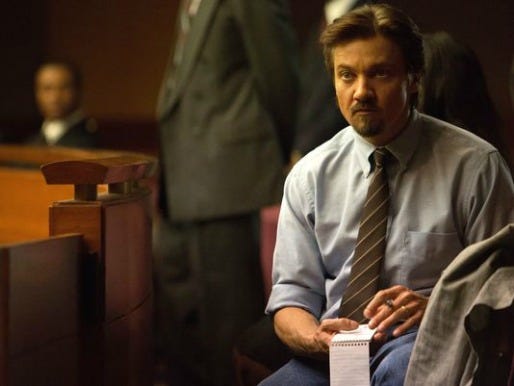Kill the Messenger

Gary Webb's career was killed not so much by the CIA as by professional jealousy. His stories, first published in the San Jose Mercury News in 1996, alleged that the CIA engineered, or at least willingly allowed, money from drug trafficking in the U.S. to support the anti-communist Contras in Nicaragua during the Reagan administration.
These facts would be largely corroborated by subsequent government investigations. But Webb, first hailed as a journalistic hero, was systematically torn apart by the Washington Post, New York Times and Los Angeles Times. The new film about Webb's story and its aftermath, "Kill the Messenger," portrays the editors at the big national papers as incensed that they had been scooped by a perceived inferior competitor.
If this sounds far-fetched, then you've never worked at a newspaper. They can be insular, fiercely protective enclaves, both internally and especially in dealing with rivals. When you beat them on a moderately big story, they try to ignore it — as if the very fact that they didn't run anything about it diminishes its importance.
If you beat the other team at a really big story, the story often becomes about you. Webb found himself celebrated, then targeted, then summarily drummed out of the business. He committed suicide seven years later.
But the wider availability of information in the Internet age prompted many to follow up on his big story and legacy, including Nick Schou, who wrote the book "Kill the Messenger" upon which this movie is based, along with Webb's own tome, "Dark Alliance."
Jeremy Renner plays Webb as a prototypically normal family man, who likes to hang out with his kids and tinker with motorcycles. Except, that is, when he gets a bite of a good story. Then he becomes a Rottweiler, not just unwilling but biologically incapable of letting go.
The film, directed by Michael Cuesta from a screenplay by Peter Landesman, is firmly in Webb's corner as a righteous journalist done wrong by the powers that be. Oliver Platt and Mary Elizabeth Winstead, who play his editors, practically leak air as turncoats who have their reporter's back until they don't.
The movie similarly starts stronger and then grows fuzzy around the edges. The first half, as Webb meticulously hunts down leads, most of them from the underworld of South and Central America cocaine traffickers, shows the drudgery of investigative journalism, sparked by occasional electricity when connections are made.
The second half gets a little repetitive and dreary, as the backlash against Webb grows, reputedly inspired by a concerted effort by the CIA itself. Shadowy figures start hanging out around Webb's home, and mute men in suits paw through his papers without even a by-your-leave.
The relationship between Webb and his wife (Rosemarie DeWitt) follows the traditional line in these sorts of movies, where the loving, understanding spouse grows concerned about how invested their partner is in their work, pushes back, and eventually dire choices must be made. They seem to fall in and out of love in just a few ticks on the clock.
The good outweighs the bad in "Kill the Messenger," but like Webb's reporting — prone to exaggeration and theatricality, but essentially true — it tries too hard at embellishing a good tale that needed no help.
3.5 Yaps



